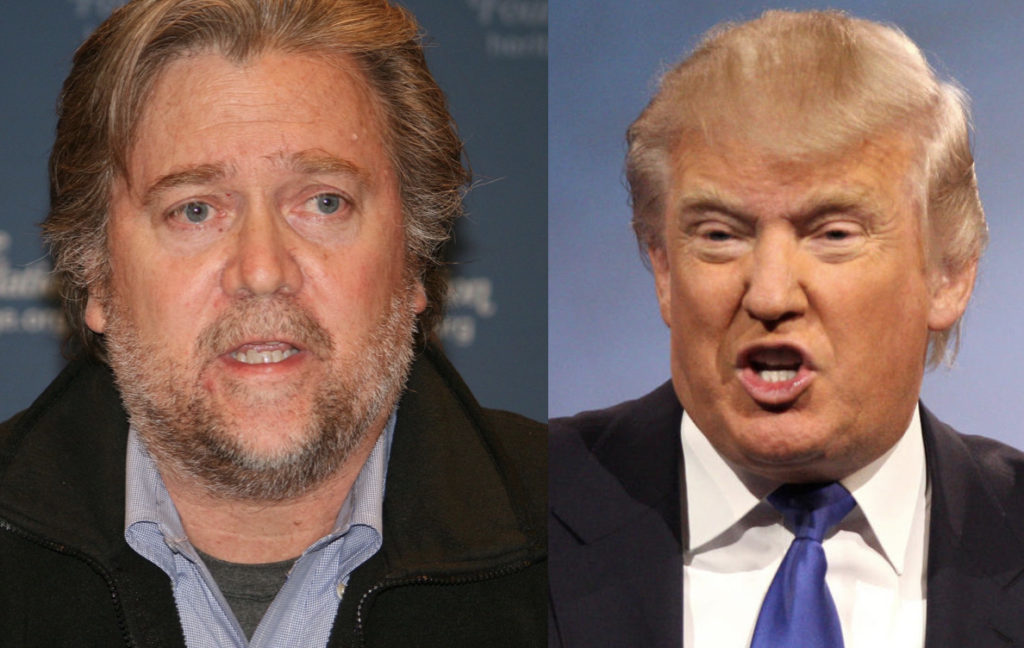As Donald Trump tries to decide whether to fire white supremacist Steve Bannon, it’ll cost him either way

Donald Trump has been quietly marching white supremacist Steve Bannon toward the White House door for the past three weeks. You’d have to ask Trump what his reasoning has been. But it’s clear that he’s been looking to oust Bannon since well before, and independent from, this weekend’s deadly terrorist attack by white supremacists in Charlottesville which has led to intense public backlash against Bannon. Now Trump faces a no-win situation.
Let’s say Trump announces Monday morning that he’s parting ways with Steve Bannon, Sebastian Gorka, Stephen Miller, and the other white supremacists in his administration. What does he stand to gain? Everyone knows he’s had these monsters in top positions on his White House staff for eight months, and that he knew exactly what they were. During the latter stages of the election, he had Bannon officially in charge of his campaign. Trump can’t prove to the American mainstream that he’s not a racist by firing these racists. If anything, firing them in the wake of Charlottesville would merely be an admission that they are racists, and that he’s been allowing racists to run his White House this entire time.
In that sense, this is the worst possible strategic time for Trump to fire Bannon. In fact Trump is now backed into a corner partly because he’s been playing his usual games. If he had just fired Bannon when he first wanted to back in July, the racists in his base would have been upset for sure, but they might not have taken it personally. However if Trump fires Bannon now, in the wake of this racist terrorist attack, Trump’s racist base will interpret Bannon’s firing as a direct slap in the face. They’ll see it as a sign that he’s selling them out in a selfish effort to survive the Charlottesville crisis in his own right.
But Trump has a history of not wanting to fire people directly, instead choosing to berate them and steadily weaken their position, in the hope they’ll end up simply quitting (see also: Sean Spicer, Jeff Sessions, Reince Priebus, etc). Over the past three weeks Trump has signed off, one by one, on the firings of all of Steve Bannon’s closest allies on the National Security Council. And over the past week, Trump has leaked one negative story about Bannon after another – including a recent one in which Trump leaked the tidbit that he thought Bannon was a leaker.
None of that has worked of course, because Steve Bannon has no shame, and he’ll cling the last shards of his White House job until Donald Trump actually fires him. In the wake of Charlottesville, Trump will gain nothing by firing Bannon, and he’ll risk losing a portion of his base at a time when he’s so unpopular he can’t afford to lose anyone. And yet with the public pressure mounting by the hour, including the phrase “Fire Bannon” now trending on Twitter, Trump may have to take the self defeating step of firing Bannon anyway.
